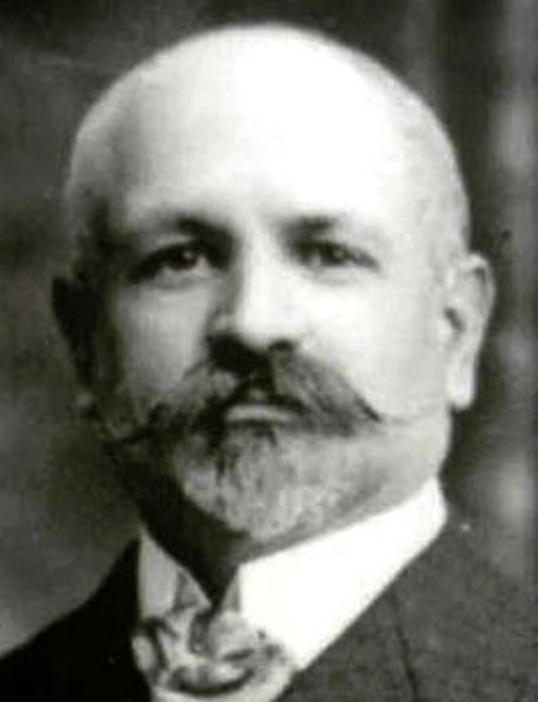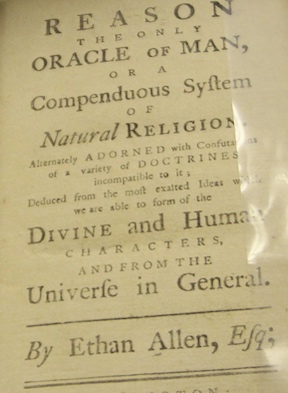January 10
Francisco Ferrer

On this date in 1859, Spanish freethinker and educator Francisco Ferrer i Guàrdia was born on a farm near Barcelona. While his parents were pious Catholics, he was influenced by the anti-clerical views of his freethinking uncle and an early employer, which led him to support left-wing causes, including efforts to end Spain’s monarchy.
As a conductor on a train between Barcelona and France, Ferrer secretly sent messages for an exiled Republican leader and helped political refugees escape. After a Republican uprising failed in 1895, he fled with his wife Teresa and three daughters to Paris, where they lived for the next 16 years and he joined various socialist and anarchist causes while teaching Spanish and selling wine on commission.
A substantial inheritance enabled Ferrer to return in 1901 to Barcelona, where he started the Escuela Moderna, openly defying the monarchy and the Catholic dogmatic education system that saturated Spain. At the time, about half of Spaniards were illiterate. One report said the school “championed traits of reason, dignity, self-reliance and scientific observation over that of piety and obedience.”
Ferrer’s school had a printing press that printed dogma-free textbooks and radical tracts. Branches were opened in several cities and then internationally. In 1906, a young man who operated the press tried and failed to assassinate King Alfonso XIII. Ferrer was charged as a conspirator and his schools were closed.
Eventually freed for lack of evidence, Ferrer toured Europe, giving speeches and founding the International League for the Rational Education of Children. In 1909, after the renewed colonial war in Morocco provoked riots and a general strike, he was blamed for fomenting the rebellion and sentenced to death by firing squad. Historian Paul Avrich later called the case a “judicial murder” carried out to dispose of an agitator whose ideas threatened the status quo.
After Ferrer’s execution at age 50, Pope Pius X sent a gold-handled sword engraved with congratulations to the military prosecutor. (D. 1909)
"Science has shown that the story of the creation is a myth and the gods legendary."
“When the masses become better informed about science, they will feel less need for help from supernatural Higher Powers. The need for religion will end when man becomes sensible enough to govern himself.”— Ferrer, quoted in "The Modern School Movement: Anarchism and Education in the United States" by Paul Avrich (1980) Second quote: Ferrer, quoted in "The Encyclopedia of Unbelief" (ed. Gordon Stein, 1985)
Ethan Allen

On this date in 1738, Ethan Allen was born in Litchfield, Conn., the eldest of eight children. Allen was the author of the first rationalist book published in America, titled Reason, the Only Oracle of Man: Or, a Compendious System of Natural Religion (1784). The New England Revolutionary War soldier critiqued Calvinist theology while promoting a deistic philosophy.
He married Mary Brownson, five years his senior, in 1762. They had a daughter, Loraine, the next year and bought a small farm which they developed into an ironworks. The marriage was unhappy as Mary was rigidly religious and barely literate. They had four more children; only two survived to adulthood. In 1770 Allen was named colonel of the “Green Mountain Boys” in Vermont and after the Revolutionary War became a member of the Vermont Legislature. Before the war he formed a land-speculation company with three of his brothers.
Reason, the Only Oracle of Man was a typical Allen polemic but its target was religious, not political. Specifically targeting Christianity, it attacked the bible, established churches and the priesthood. In it he wrote, “In those parts of the world where learning and science have prevailed, miracles have ceased; but in those parts of it as are barbarous and ignorant, miracles are still in vogue.” Allen espoused a mixture of deism, Spinoza‘s naturalist views and precursors of transcendentalism, with man acting as a free agent within the natural world.
Mary Allen died in 1783 of consumption, followed several months later by Loraine’s death. In 1784 he married Frances “Fanny” Montresor Brush Buchanan, a widow. They had three children, the last a son born several months after Allen’s death at age 51 of what was thought to be a cerebral hemorrhage. His two sons went on to graduate from West Point. (D. 1789)
“In the circle of my acquaintance, (which has not been small), I have generally been denominated a Deist, the reality of which I never disputed, being conscious I am no Christian, except mere infant baptism make me one; and as to being a Deist, I know not, strictly speaking, whether I am one or not, for I have never read their writings …”
— Allen, "Reason, the Only Oracle of Man" (1784)
